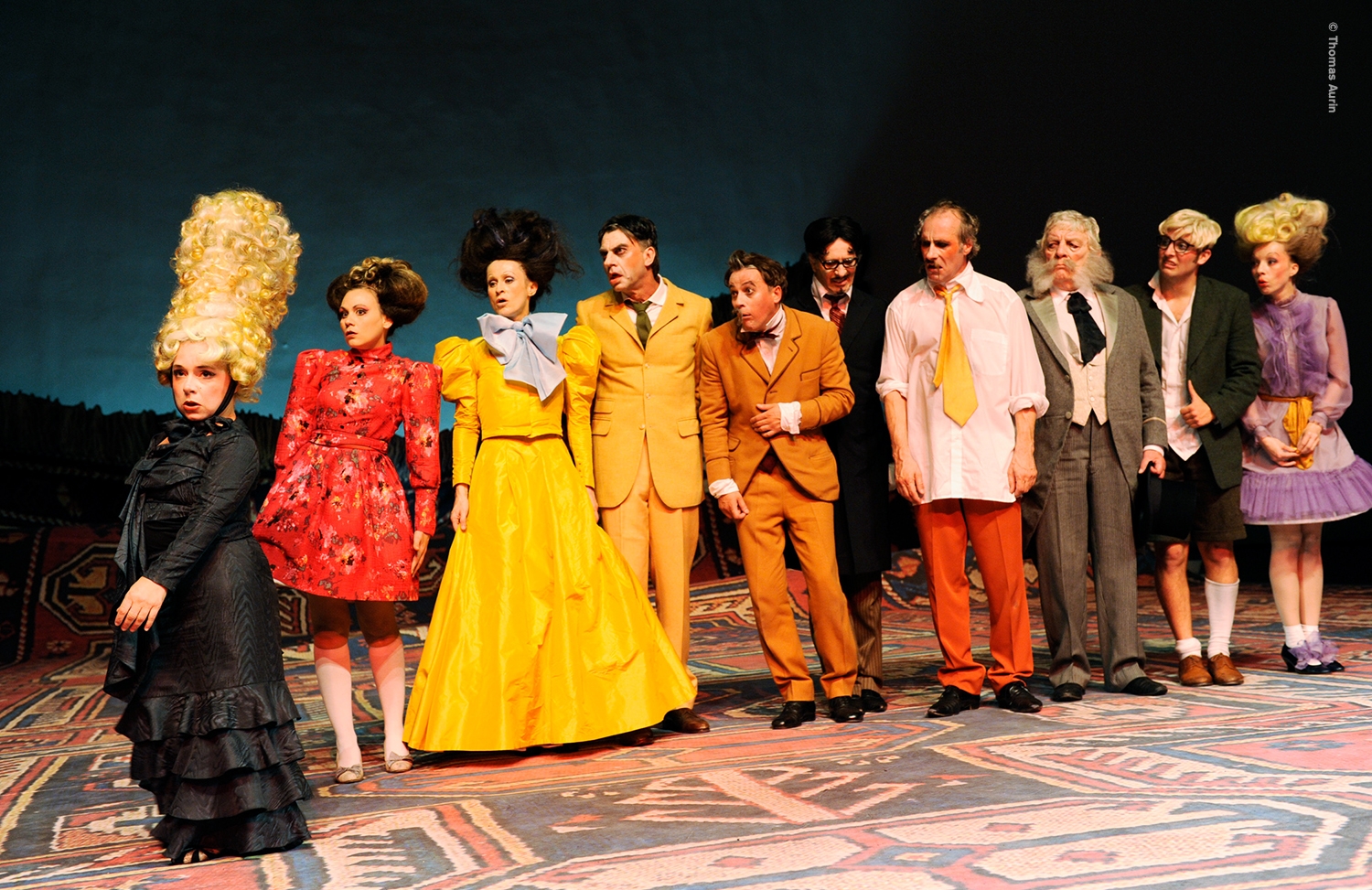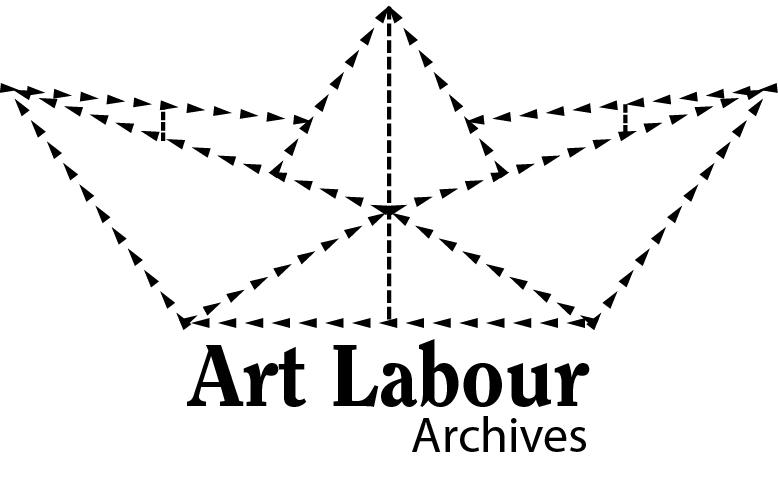

The three-day festival BE.BOP 2016 - Black Europe Body Politics - brings together black and African diasporas' artists and activists from all over the globe to create a public forum committed to collectively building knowledge based on decolonial thinking and theorizing. At the interface between art and academic debate BE.BOP 2016's extensive "CALL & RESPONSE" programme offers exciting performances, films and videos combined with outstanding talks and discussions.
The fourth edition of BE.BOP, a production of Art Labour Archives, brings together this year artistic practices and scientific contributions under the thematic framework of CALL & RESPONSE. The designation CALL & RESPONSE describes the antiphony effect, characteristic to African musical legacies in which the audience responds to a leading voice at systematic intervals. BE.BOP also operates as a safe space, a quintessential maroon category, and as such has become an utterly rewarding collective experience.
BE.BOP brings into focus once again, a historical perspective on the racialized inequalities during the periods of imperial expansion and colonization. Access to social and physical mobility was firmly organized, similar to the Apartheid in South Africa. Mobility – who is mobile and how, who is permitted to go where, and who is considered a migrant, 'expat' or 'tourist' etc. - is still founded on a structural coloniality that is evident in citizenship statuses of various migration regimes. The event fosters a discussion of the possibilities to overcome currently enduring colonial inequalities and "uneven mobilities" (Mimi Sheller), as well as new forms of conviviality in the societies of our globalized world. In view of the current crisis of European societies, this is an evident and pressing issue.
PROGRAMME HIGHLIGHTS + GUESTS
BE.BOP 2016 presents in this context for the first time the video-art “Napulis Tree” by Yoel Diaz Vazquez, which shows the symbolic tree at the Oranienplatz in Berlin to which the refugee and activist Napuli Langa climbed in April 2014, remaining for four days without food and drink and setting an impressive precedent against the racist asylum politics in Germany.
BE.BOP 2016 introduces international guests, artists, activists and scholars: Sandra Abd’Allah-Alvarez Ramírez + Laura Alegre + Dalida María Benfield + Gurminder K. Bhambra + Manuela Boatca + Erna Brodber + Lesley–Ann Brown + Artwell Cain + Kjell Caminha + Augustus Casely-Hayford + Mathias Danbolt + Teresa María Díaz Nerio + Yoel Díaz Vázquez + Frank Dragtenstein + Rebecca Drammeh + Simmi Dullay + Jeannette Ehlers + Fatima El Tayeb + Quinsy Gario + Cristel Gbaguidi + Pedro Pablo Gómez + Gillion Grantsaan + Adler Guerrier + Ylva Habel + Sasha Huber + Malcolm Momodou Jallow + Jane Jin Kaisen + Patricia Kaersenhout + Nazila Kivi + Krudas Cubensi + Napuli Langa + Mette Moestrup + Mwangi Hutter + Patrice Naimbana + Tone O. Nielsen + Tanja Ostojic + Zulma Palermo + Malena Pestellini + Anne Ring Petersen + Tuleka Prah + Rod Sachs + Moritz Schramm + Robbie Shilliam + Helle Stenum + Javier Tapia + Ovidiu Tichindeleanu + Rolando Vázquez.
1-3 June 2016
Volksbühne at Rosa-Luxemburg-Platz
Berlin
Wednesday, June 1, the program begins with the presentation of the volume “BE.BOP 2012-2014: El Cuerpo en el Continente de la Conciencia Negra" ("The body in the Continent of Black Consciousness", Ediciones del Signo) including the first Spanish translation of Erna Brodber and Fatima El Tayeb, followed by the Berlin premiere of the film "Ori" by Raquel Gerber. In the afternoon, Jeannette Ehlers' installation opens on the forecourt of the Volksbühne, followed by the first of eight panel discussions on the theme "Marronage and Border Thinking". Next is the second panel discussion entitled "Maroonage, (De)coloniality and Intercultural Education" and a performance by Teresa María Díaz Nerio entitled "Areíto Indestructible".
Thursday June 2, begins with the third panel discussion "Contemporary Marroonage and Collective Healing". An inspiring performance by the artist Quinsy Gario and the fourth panel discussion "Enslavement, Genocide and the Coloniality of Memory" are also on the schedule. The day will conclude with the Berlin premiere of the monologue "Perception Gap" by Patrice Naiambana.
Friday June 3, opens with the fifth discussion format entitled "Spiritual Liberations and Pan-Africanism" followed by the world premiere of the film "Allen Report. Retracing Transnational African Methodism" (2013-2016) by Alanna Lockward, which resonates with the campaign "No Amnesty on Genocide" and won a Production Award of the Direccion General de Cine de República Dominicana. The program continues with the sixth discussion session "Free Women of Color in Europe and Abya Yala". This is followed by the seventh panel discussion "The Haitian Revolution as universal Maroon Legacy". The eighth and final public discussion is called "(De)coloniality and Scandinavian Exceptionalism". After the final discussion the event ends with the world premiere of the performance "A History of Grief" by Patricia Kaersenhout.
Curated by Alanna Lockward
Walter Mignolo + Advisor
Julia Roth + Commissioned Works Coordinator
Elena Quintarelli + Curatorial Assistant
In English with simultaneous translation into German and Spanish
Festival Ticket 21 € / 15 € Reduced
Day Ticket: 8 € / 5 € Reduced
Produktion von Art Labour Archives

Gefördert durch die Bundeszentrale für politische Bildung (bpb)
In Kooperation mit AfricAvenir
![]()
Partners: Humboldt Universität zu Berlin, Center for Global Studies and the Humanities + IDEA. Arts + Society + Transnational Decolonial Institute + Art, Culture and Politics in the ‘Postmigrant Condition' (Danish Council for Independent Research). + Ediciones del Signo + Trampoline House + University of Copenhagen
 |
In Dänemark gefördert durch das Danish Arts Foundation
Media Partners: AfricAvenir + AFROTAK TV cyberNomads + Reboot FM + Uprising Art + Afrikadaa
Programm:
Über drei Tage gestaltet sich ein umfangreiches und abwechslungsreiches Programm mit insgesamt acht hochkarätig besetzten Diskussions-Sessions mit spannenden Intervallen von Performance, Film und Video. Am Mittwoch, 01. Juni beginnt das Programm mit der Präsentation der Reihe: BE.BOP 2012-2014: El Cuerpo en el Continente de la Conciencia Negra” („Der Körper auf dem Kontinent des Schwarzen Bewusstseins“, Ediciones del Signo) in der ersten spanischen Übersetzung von Erna Brodber and Fatima El Tayeb, gefolgt von der Berlin Premiere des Films „Ori“ von Raquel Gerber. Am Nachmittag wird die erstmals in Berlin gezeigte Installation der Künstlerin Jeannette Ehlers auf dem Vorplatz der Volksbühne eröffnet, bevor die erste von acht Panel-Diskussionen mit dem Thema „Marronage und Grenzdenken“ beginnt. Die zweite Diskussionsrunde mit dem Titel „Maroonage, (De)kolonialität und interkulturelle Erziehung“ folgt darauf sowie eine Performance von Teresa María Díaz Nerio. Der erste Tag endet mit dem Film - Screening von „My African Food Map“ von Tuleka Prah. Tag zwei beginnt mit der dritten Diskussionsrunde mit dem Titel „Zeitgenössische Marroonage und kollektives Heilen“. Im Anschluss folgt die Weltpremiere einer inspirierenden Performance des Künstlers Quinsy Gario und die vierte Panel-Diskussion „Versklavung, Genozid und die Kolonialität des Erinnerns“. Der Tag findet seinen Abschluss mit der Weltpremiere des Monologs „Perception Gap“ von Patrice Naimbana. Den letzte Tag eröffnet das fünfte Diskussionsformat mit dem Thema „Spirituelle Befreiung und Panafrikanismus“ gefolgt von der Weltpremiere des Films "Allen Report. Retracing Transnational African Methodism" (2013-2016) von Alanna Lockward, entstanden im Zuge der Kampagne „No Amnesty on Genocide“ und ausgezeichnet mit einem Production Award der Direccion General de Cine de República Dominicana. Das Progamm geht weiter mit der sechsten Diskussions-Session unter dem Titel „Freie Women of Color in Europa und Abya Yala“. Im Anschluss folgt die siebte Panel-Diskussion mit dem Titel „Die Haitianische Revolution als universelles Maroon-Vermächtnis“. Die achte und letzte öffentliche Diskussionsrunde träg den Titel „(De)kolonialität und Skandinavischer Exzeptionalismus“. Nach der Abschlussdiskussion wird die Veranstaltung mit der Weltpremiere der Performance „A History of Grief“ von Patricia Kaersenhout ihr Ende finden.
10:30-11:30
Präsentation des Ediciones del Signo’ Band: BE.BOP 2012-2014: El Cuerpo en el Continente de la Conciencia Negra” (Der Körper auf dem Kontinent des Schwarzen Bewusstseins). Herausgegeben von Alanna Lockward für den Sammelband “El Desprendimiento” (De-linking), gestaltet von Walter Mignolo, übersetzt von Laura Alegre und überarbeitet von Teresa María Díaz Nerio. Mit Beiträgen von: Manuela Boatca, Erna Brodber, Lesley-Ann Brown, Artwell Cain, Teresa María Díaz Nerio, Yoel Díaz Vázquez, Simmi Dullay, Jeannette Ehlers, Fatima El Tayeb, Patricia Kaersenhout, Walter Mignolo, Quinsy Gario, Julia Roth, Robbie Shilliam und Rolando Vázquez.
Laura Alegre + Alanna Lockward + Walter Mignolo + Artwell Cain + Teresa María Díaz Nerio + Julia Roth
Moderiert von Rolando Vázquez
11:30-13:30, Roter Salon
Screening Orí von Raquel Gerber. Berlinpremiere
Moderiert von Artwell Cain
13:30-14:30
PAUSE
14:30-15:30
Park
Parade von Jeannette Ehlers
15:30 -17:15, Roter Salon
SESSION I: MARRONAGE UND GRENZDENKEN
Walter Mignolo + Robbie Shilliam + Augustus Casely-Hayford + Jeannette Ehlers
Moderiert von Quinsy Gario
17:15-17:45
PAUSE
17:45-19:00, Roter Salon
SESSION II: MARRONAGE, (DE)KOLONIALITÄT UND INTERKULTURELLE ERZIEHUNG
Pedro Pablo Gómez + Rolando Vázquez + Simmi Dullay + Rod Sachs
Moderiert von Ovidiu Tichindeleanu
19:00-19:30
Screening My African Food Map von Tuleka Prah
20:00-22:00, 3.Stock
Teresa María Díaz Nerio. Areíto Indestructible, Performance, Weltpremiere
Q & A Moderiert von Alanna Lockward
11:00-13:00, Roter Salon
SESSION II: ZEITGENÖSSISCHE MARRONAGE UND KOLLEKTIVES HEILEN
Yoel Díaz Vázquez + Cristel Gbaguidi + Napuli Langa + Tanja Ostojić + Julia Roth
Moderiert von Robbie Shilliam
13:00-14:00, 3.Stock
Quinsy Gario, Black, Basically a Genealogical Materialist Analysis, Performance, Weltpremiere
14:00-15:00
PAUSE
15:00-17:00, Roter Salon
SESSION IV: VERSKLAVUNG, GENOZID UND DIE KOLONIALITÄT DES ERINNERNS
Manuela Boatcă + Artwell Cain + Ovidiu Tichindeleanu + Patrice Naiambana
Moderiert von Walter Mignolo
17:00-17:15
PAUSE
17:15-19:00, Roter Salon
Dalida María Benfield + Jeannette Ehlers + Teresa María Díaz Nerio
Moderiert von Alanna Lockward
19:00-20:00
PAUSE
20:00-22:00, 3.Stock
Patrice Naiambana, Perception Gap, solo-digital performance. Deutschlandpremiere
11:00-13:00, Roter Salon
SESSION V: SPIRITUELLE BEFREIUNG UND PANAFRIKANISMUS
Screening Allen Report. Retracing Transnational African Methodism (2016) von Alanna Lockward. Weltpremiere
Moderiert von Julia Roth
13:00-13:30
PAUSE
13:30-15:00, Roter Salon
SESSION VI: FREIE WOMEN OF COLOR IN EUROPA UND ABYA YALA
Frank Dragtenstein + Sandra Abd’Allah-Alvarez Ramírez + Krudas Cubensi + Patricia Kaersenhout
Moderiert von Teresa María Díaz Nerio
15:00-16:30, Roter Salon
SESSION VII: DIE HAITANISCHE REVOLUTION ALS ÙNIVERSELLES MAROON VERMÄCHTNIS
Adler Guerrier + Alanna Lockward + Quinsy Gario
Moderiert von Walter Mignolo
16:30-16:45
PAUSE
16:45-18:00, Roter Salon
SESSION VIII: (DE)KOLONIALITÄT UND SKANDINAVISCHER EXZEPTIONALISMUS
Lesley-Anne Brown + Mette Moestrup + Nazila Kivi + Sasha Huber
Moderiert von Simmi Dullay
20:00-22:00, 3 Stock
Patricia Kaersenhout. A History of Grief, Performance. Weltpremiere
Q & A mit Patricia Kaersenhout
Moderiert von Dalida María Benfield